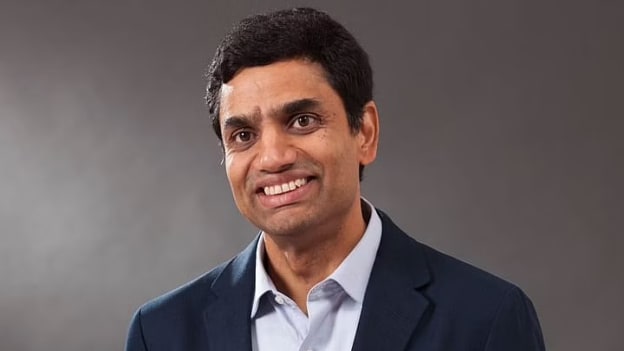Designing people systems is critical to business outcomes, says Krish Shankar, EVP HR, Infosys

As told by Krish Shankar, Executive Vice President and Group Head of Human Resource Development at Infosys.
When one reflects on what makes a leader successful, one sees these three ingredients: Firstly, their ability to think strategically; they can look at opportunities and connect the dots; Secondly, they have excellent leadership skills; they can inspire and align people within their teams; As the business scales, there is a third element that comes into place, that many times gets missed: these leaders need to leverage people systems to multiply their impact. Soon, good leaders realise that leadership skills are limited to the interactions that they can have one-to-one with immediate teams, and that businesses need to invest in people systems to deliver business outcomes at scale.
That's what HR is all about; it is about designing people systems required for the business to succeed. Sometimes, the different HR functions can get ‘lost in translation’, sometimes becoming too technical and alienating themselves from the business or failing to integrate into the business outcomes.
Therefore, it all starts with the business outcomes. The first step in designing any process is identifying the outcome we aim to achieve. Businesses are not interested in a recruitment system or a learning system per se; they are interested in accessing the organisation's skills required to deliver the customer's promise. With all people systems, start with the business outcome & then design the system & process to achieve it.
In my book, I talk about ten foundational people’s outcomes:
On driving engagement as a business outcome
One of the critical business outcomes we want to drive is to help our people be engaged, motivated, and at their best. In my experience, five core elements are needed to make this happen:
The first one is to be part of a great team; great peers and a great manager is the first stage of engagement. The social element of working with people you like is essential to many people, especially the younger generation.
The second is having access to learning, growth, and development. Am I learning new things? Am I growing as a professional? Learning and career growth are critical for engagement.
The third important one is recognition. This need is increasing even more, and I don't think all organisations do enough.
The fourth area is psychological safety. There are many layers of psychological safety in teams; employees want to feel safe to question, suggest, and push things. This helps them be at their best natural selves.
The fifth one is purpose. Purpose has two sides: one is about seeing that my work makes a difference to larger stakeholders; the other is to fulfil my personal aspiration, as an individual, within the organisation. Both dimensions are essential.
These are the five components, and as designers of people systems, we need to look at the outcomes we aspire to achieve and consider these five dimensions to create the right mix of experience, environment & culture.
On core role for HR leaders
There are three core roles that HR has to play in business. The first is to advocate fairness and inclusion - HR must lead the way to design an inclusive and equitable workplace environment. The second one is to be a partner and a coach for individuals and managers - HR must support and encourage growth and development, inspiring people to invest in learning & development. And the third one is to be a culture architect and drive culture, and the right collective emotions, within the organisation. I write in the book about how the right collective emotions can help us achieve business goals.
In my experience, these are the three core roles for HR that we need to focus on. Executing specific people systems is also vital, like recruitment, people operations, etc. But in the end, it is all about focussing on business outcomes- and the relevant people outcomes. All our people systems would be aligned to it. An inclusive and thriving culture will play a critical role in that success.
Excerpts from an interview at the recently-held People Matters EX Conference in Bangalore. Krishnamurthy (Krish) Shankar is Executive Vice President and Group Head of Human Resource Development at Infosys & author of the book CATALYSE: POWER UP YOUR PEOPLE ECOSYSTEM. You can buy Krish's book here .















